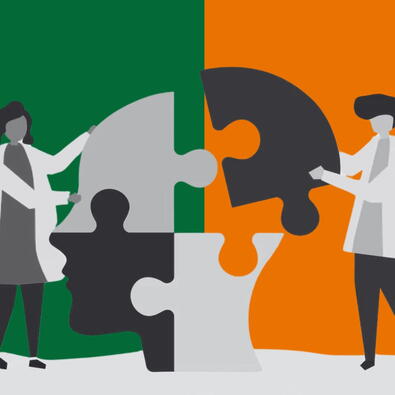
Finding Calm in Chaos: Protecting Your Mental Health During Natural Disasters
With the upcoming Hurricane Milton only two weeks after the devastation caused by Hurricane Helene, prioritizing yourself is vital. Following disaster, people will often feel disoriented or be unable to process the distressing situation. Chaos can leave us feeling overwhelmed and vulnerable so making sure your mental health comes first is essential.
Common responses to natural disasters can be:
- Changes in thoughts and behavior patterns: Sleep and eating patterns may be disrupted due to repeated and vivid memories of the event. It might make concentration difficult and lead to rapid heart rates or sweating.
- Intense and anxious feelings: You may feel nervous, overwhelmed, grief-stricken, or depressed.
- Sensitivity to environmental factors: Sirens, loud noises, branches cracking, or other environmental commotions may bring back memories of the event or fear that the event will be repeated.
- Strained interpersonal relationships: You might become withdrawn and isolated from social activities leading to disagreements and hostility with others.
- Physical symptoms: Stress can cause physical symptoms such as headaches, nausea, and chest pain. Also, pre-existing medical conditions can be affected or aggravated by disaster-related stress.
How can you cope with these responses? Luckily humans are extremely resilient and strong. It may take time, but people can go back to life as it was before the storm by doing the following:
- Be kind to yourself: Give yourself time to adjust to these life-altering events. Allow yourself to mourn losses and be patient as healing takes time.
- Don’t isolate yourself: Ask for help. Social support is a key factor in disaster recovery. Talk to someone you trust to offer some relief and take the emotional weight off your shoulders.
- Talk to your children: If you have kids, talk to them and let them express their feelings about the situation. They may feel scared, sad, or confused so show them what healthy coping looks like.
- Limit consumption of news: The constant replay of news stories about a disaster that you lived through can bring up memories or increase stress.
- Avoid making major life decisions: Drastically altering your life after a traumatic experience would only add to your stress.
Engage in healthy behavior: Get enough “good” sleep by avoiding using your electronics, caffeine, or alcohol before bed. Try journaling to express what you are feeling or thinking. Additionally, eat well-balanced meals to keep your energy and spirit up.
Should you seek professional help?
If you notice that you are finding it increasingly difficult to move past the disaster or you are experiencing heightened feelings of despair, hopelessness, or stress, it might be beneficial to seek a mental health professional.
Living through a natural disaster is an experience that has the potential to dictate the rest of your life. The aftermath can leave emotional scars, affecting not only your mental health but also your sense of safety and community. It is vital to acknowledge that any feelings you may have are valid and shared by others.
Protecting your mental health is not only a personal necessity but an act of resilience. Recognizing your trauma and implementing coping skills is the first step in healing. Utilize family and friends and remember that no matter what, you are not alone. You can find hope amid the chaos, and it is a testament to your strength and ability to endure.
Citations:
https://www.samhsa.gov/find-help/disaster-distress-helpline/coping-tips
https://www.apa.org/topics/disasters-response/recovering
